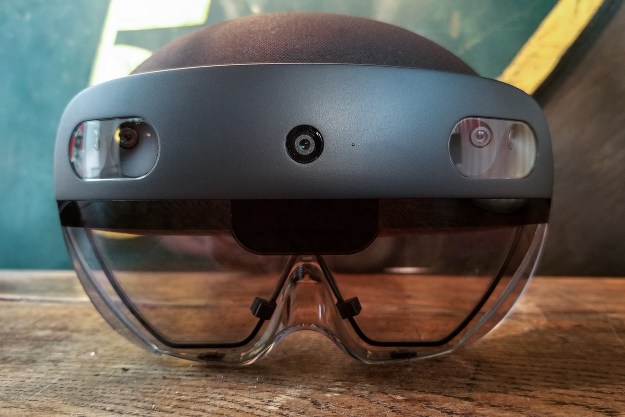Up close, short-range and long-range gesture tracking is something Microsoft has been playing around with for some time. We saw the first potential commercial applications of the technology with Microsoft’s Kinect system on the Xbox 360 and Xbox One, but the firm believes that the technology can go much further than that.
While most people consider gesture controls — particularly in VR — for gaming purposes, Adi Diamant, director at Microsoft’s Advanced Technologies Lab, thinks it can go much further. He sees gestures as helping with everyday activities, including designing, flipping through spreadsheets, writing, browsing the web, and such creative tasks as making music (thanks Winbeta).
Related: Google and LG built a gesture-controlled smartwatch using Project Soli
In the above video showcase of what it has been developing, Microsoft shows how its developments are beginning to overtake those from other institutions around the world. Most notably the firm has improved the efficiency of hand tracking, reducing the amount of information that must be gathered in order to reproduce hands and digits in the virtual world by huge margins. That allows the software to recover from tracking failure much more quickly.
Better yet, it means that low-end hardware can still run hand tracking, which would be the best way to bring a large number of people on board with the input method. Considering how high the bar for entry-level virtual reality has been set, it’s good to see that future technologies may not be quite so taxing.
And yes it’ll be good for gaming too. As Microsoft shows at the end of the video, human interaction in gaming worlds designed to aid non-player characters could be a whole new genre in itself, and could showcase a very intuitive way to teach people about interacting with virtual worlds.
We just want a chance to try out that virtual keyboard.
Editors' Recommendations
- Apple just patented a new VR headset controller — but there’s a catch
- Apple’s XR headset could get one of the Mac’s best features
- Meta just revealed how VR headsets could look in the future
- Apple’s VR headset could get these surprise iOS features
- Turns out Microsoft’s HoloLens 3 might not be dead after all



